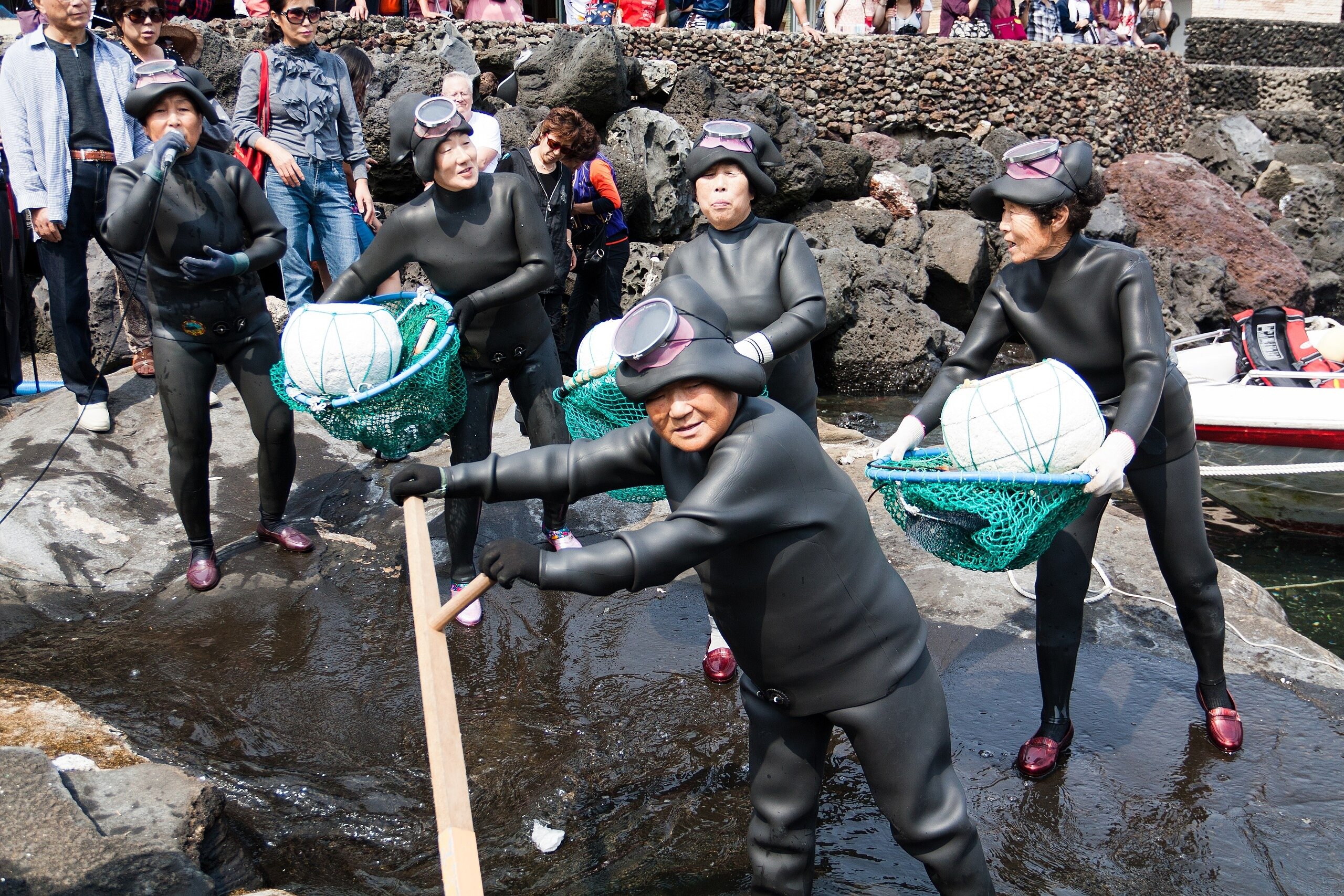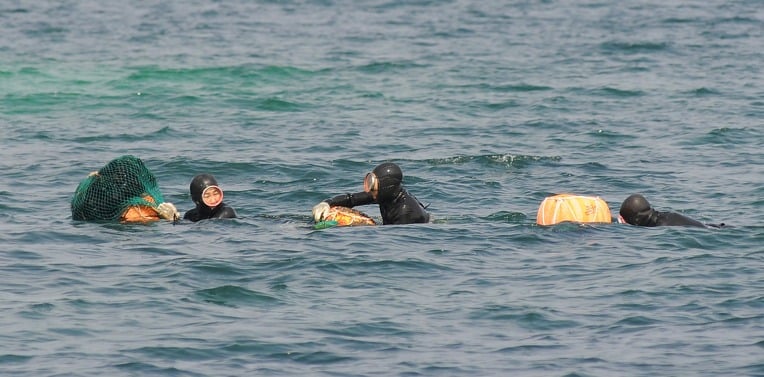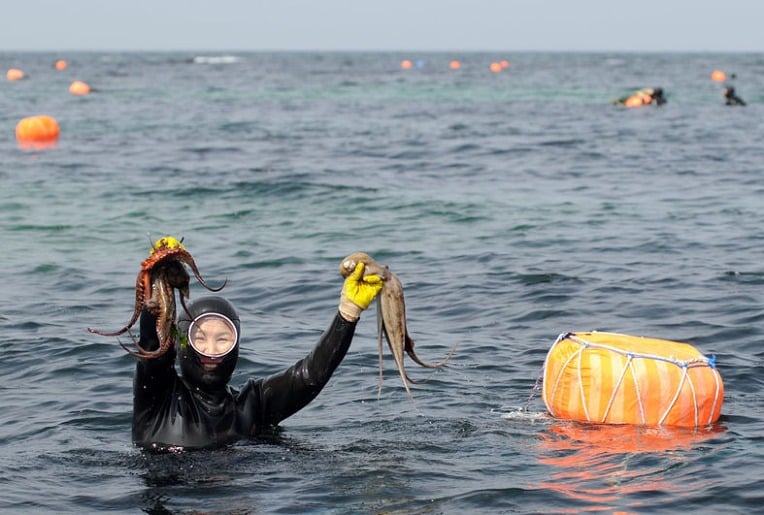The Incredible "Sea Women" Of Jeju
Language
Reading Level
Listen to Article
Alignment

The Haenyeo, or "sea women," of South Korea's Jeju Island are famous for their incredible diving skills. These women spend several hours underwater each day collecting sea urchins, abalone, and other seafood. They dive almost 60 feet (18 m) into frigid waters without an oxygen tank. Remarkably, many continue this demanding work well into their 80s.
Curious to see how these women accomplish the feat, Dr. Melissa Ilardo of the University of Utah decided to investigate. For their study, Ilardo's team selected 30 Haenyeo divers, 30 non-diving women also from Jeju, and 31 women from mainland Korea. This helped them compare the bodies of divers with those who live nearby but did not dive. All the women were around 65 years old. Each participant then performed a simulated dive by immersing their face in cold water and holding their breath. The results were striking. The Haenyeo divers’ heart rates dropped about 50 percent more than those of their non-diving peers, including the women from Jeju.

The researchers believe this response is developed over years of practice. When Haenyeo dive into the cold sea, their bodies slow their heart rate and send blood to vital organs, like the brain and heart. This lets them stay underwater longer and reach greater depths while harvesting seafood.
Next, the team analyzed saliva samples to look for genetic differences. They found that all the Jeju women — divers and non-divers — shared similar genes. Two in particular stood out. The first one was linked to cold tolerance.
"Maybe that protects them from hypothermia in ways that we don't fully understand yet," Ilardo suggests.

The second gene is associated with blood pressure. It likely helps the divers control it underwater. Ilardo believes that because all Jeju women carry both genes, many people on the island likely have ancestors who were divers.
The team published their findings in the journal Cell Reports on May 2, 2025. They say that understanding these adaptations could lead to new treatments for people with high blood pressure or breathing issues.
Resources: NPR.com, Wikipedia.org, Smithsonianmag.com